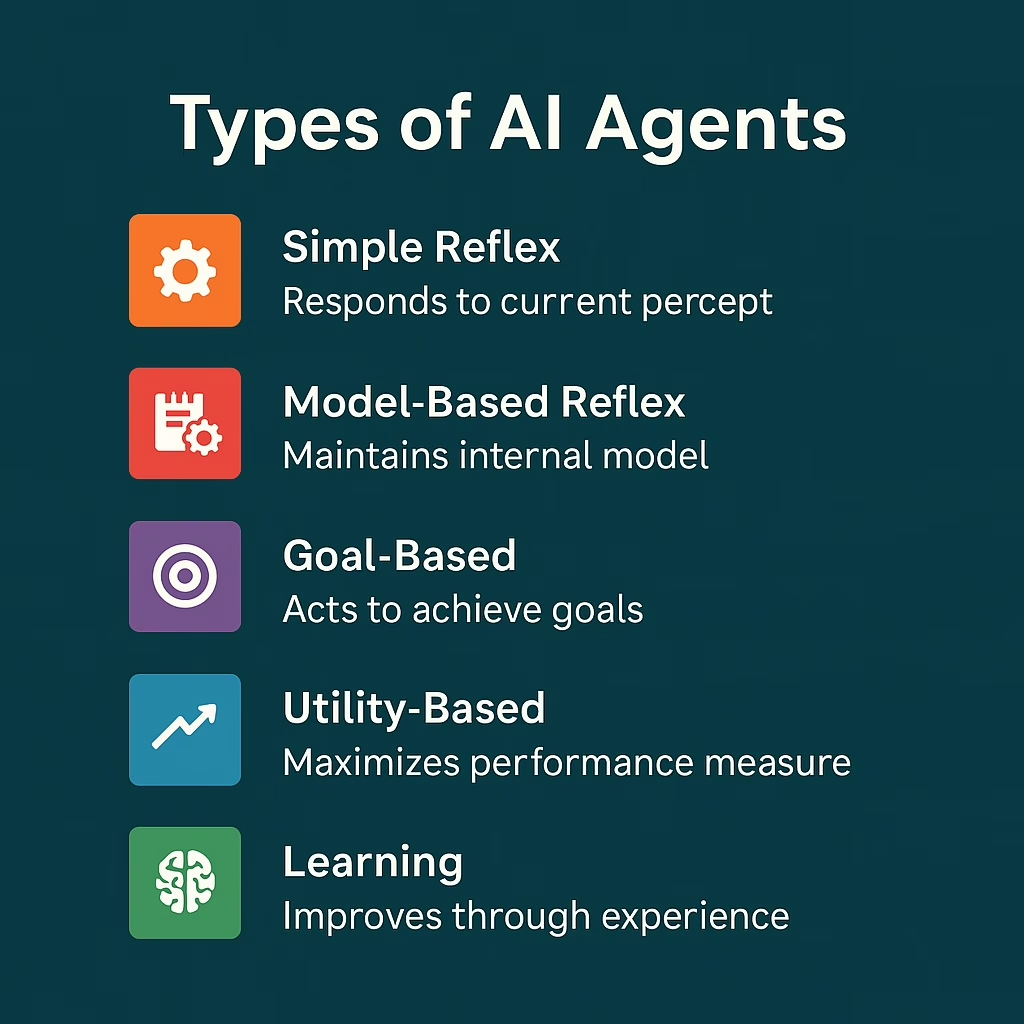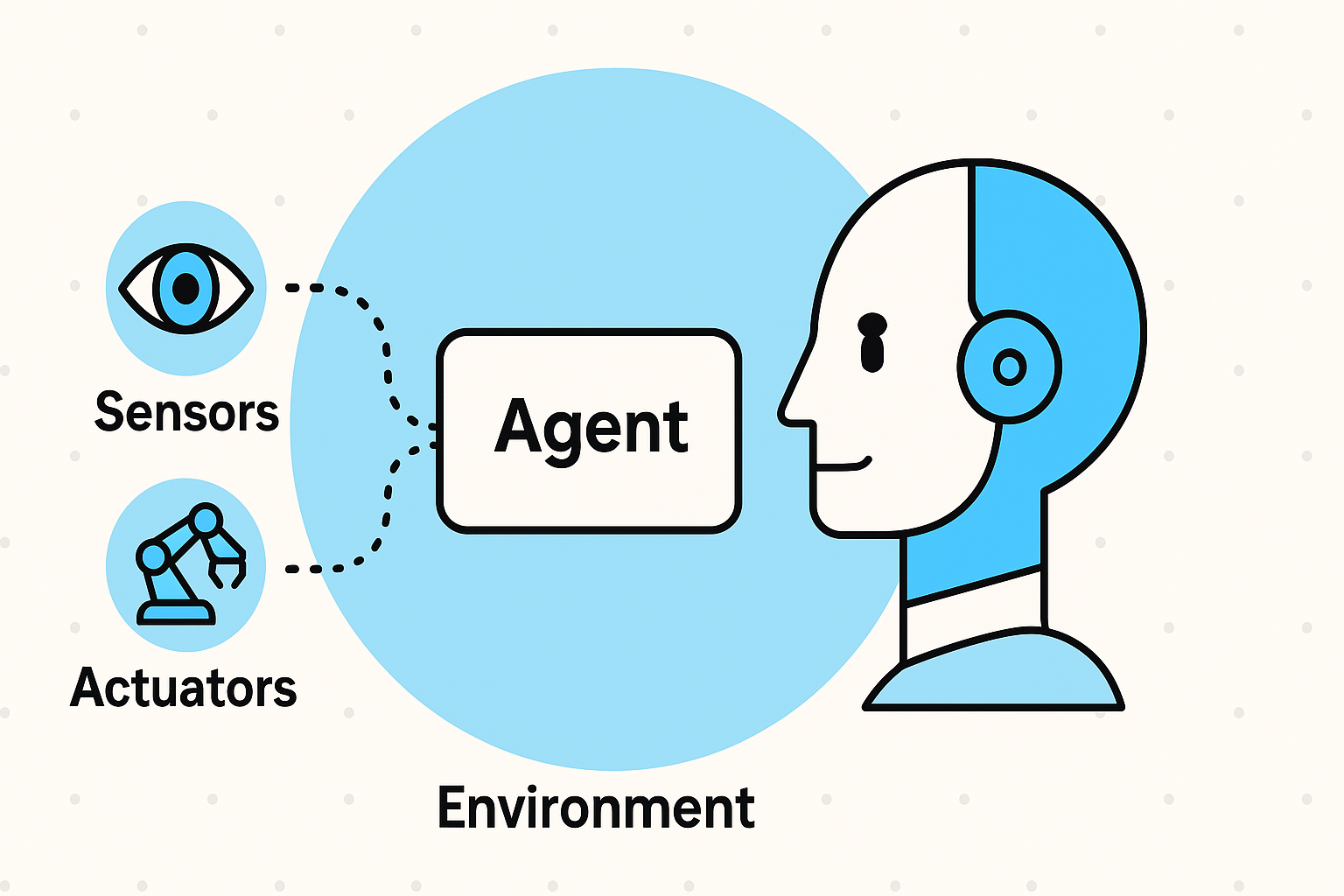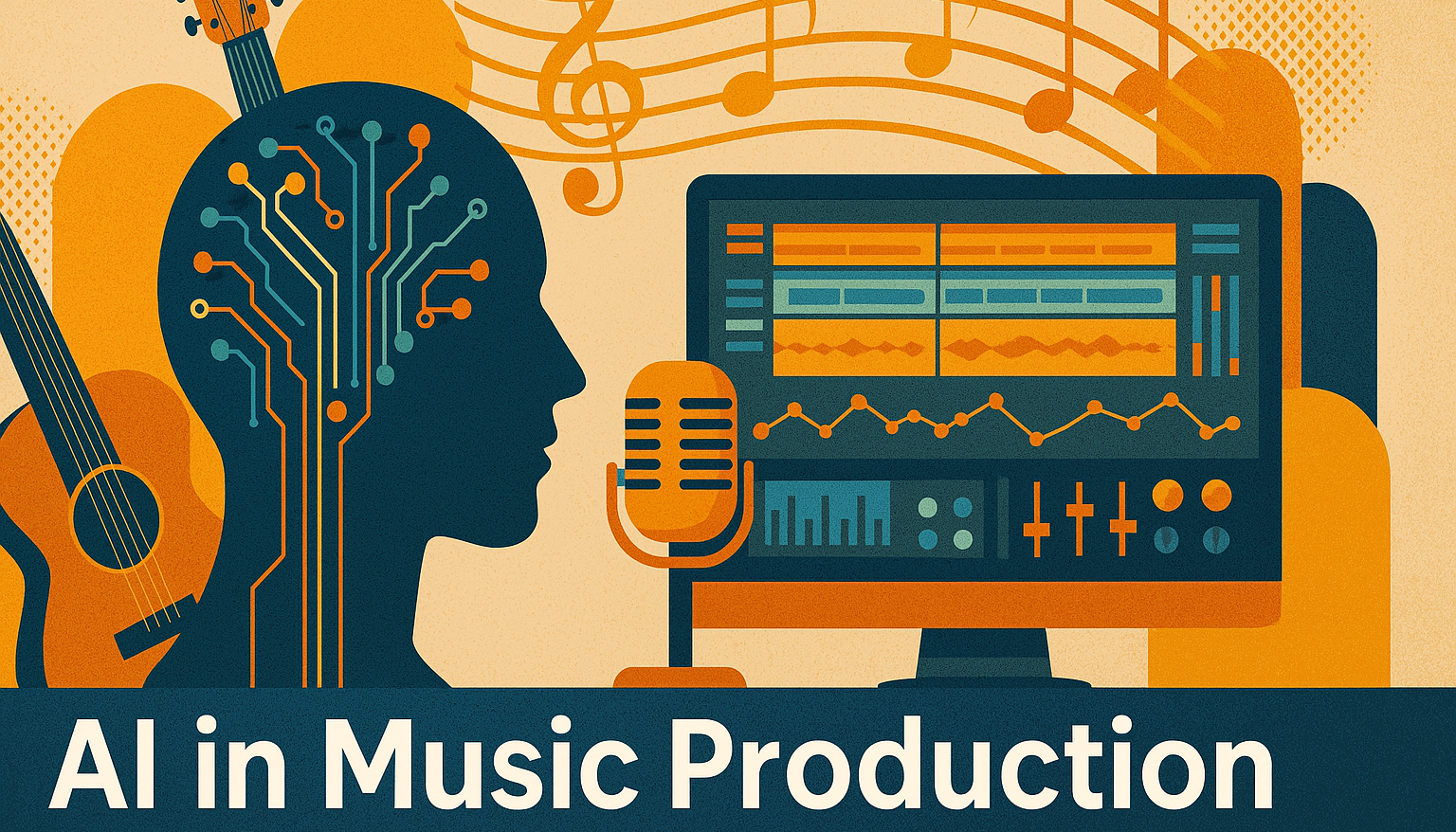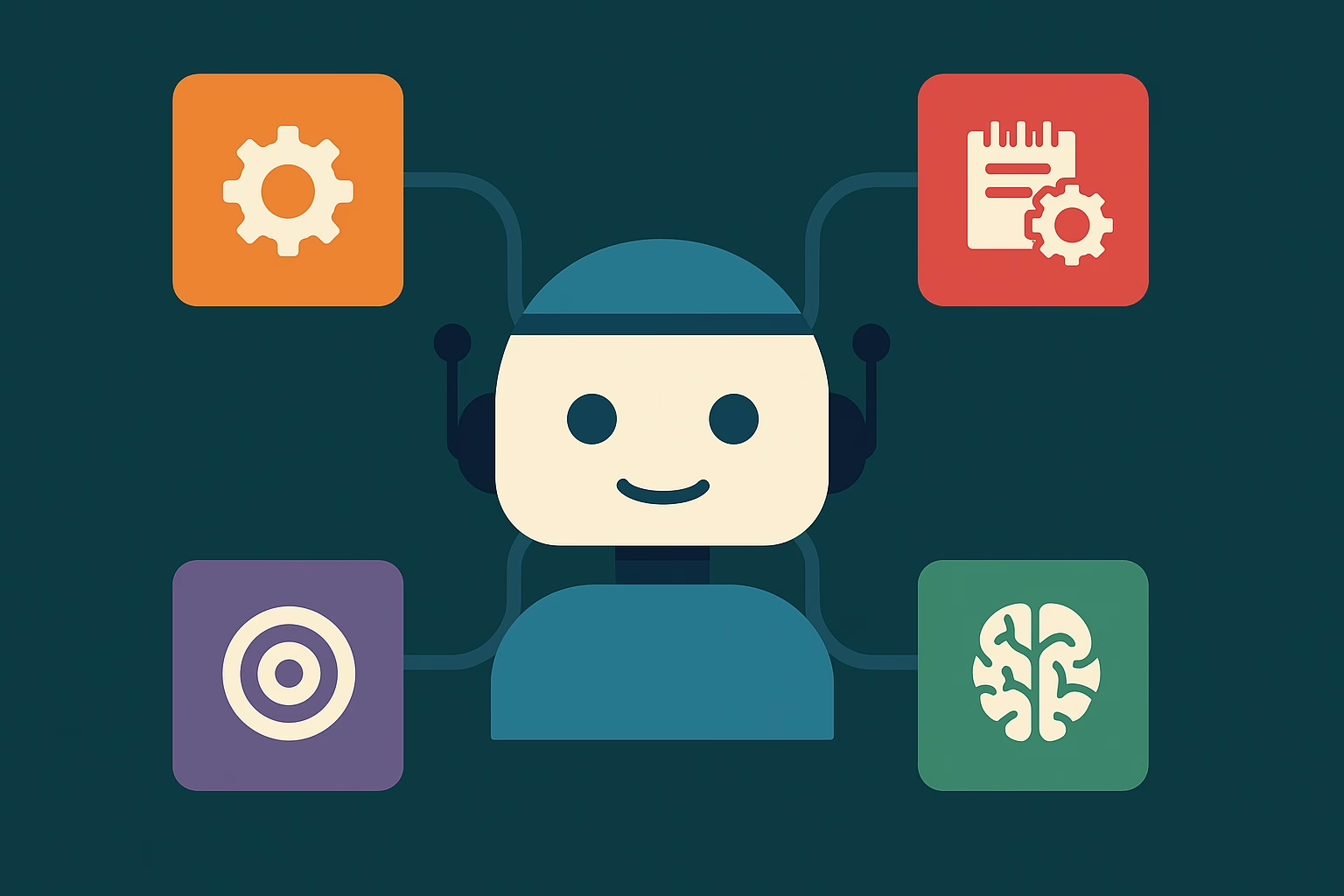Not All Types of AI Agents Are Created Equal
If you’ve ever thought all types of AI agents are the same, think again. Some follow simple rules, others chase goals, and a few even learn like overachievers in a coding bootcamp. 🧑💻
In this article, we’ll explore five types of AI agents. You’ll learn what makes each one tick, where they’re used, and how they fit into the bigger picture of artificial intelligence.
Let’s break it down, shall we?
⚡ 1. Reflex Agents: The Quickest Type of AI Agent in Action
These agents are the basic bots of the AI world. They work like “if this, then that” machines.
- How they work:
They respond only to current percepts. No memory, no plan, just reaction. Think of them as the goldfish of AI. - Real-world example:
Your robotic vacuum cleaner that turns left when it hits a wall.
It doesn’t remember where the wall was—just reacts. - Upside: Fast and efficient.
- Downside: Completely clueless about the bigger picture.
🧠 2. Model-Based Agents: A Smarter Types of AI Agents with Memory
These agents are a step up. They maintain an internal model of the world.
- How they work:
They don’t just react. They remember what they saw earlier and use that info to act smarter. This memory is called a world model. - Real-world example:
A smart thermostat that doesn’t just read the current temperature, but also remembers when the room last heated up. It adapts accordingly. - Upside: Handles more complex environments.
- Downside: Can be confused if the model is wrong.
💡 Transitioning from reflex to memory is a game-changer.
🎯 3. Goal-Based Agents: A Type of AI Agent That Plans Ahead
These agents don’t just act smart. They aim for goals.
- How they work:
They plan ahead. Given a goal, they explore possible sequences of actions that can lead them there. It’s like having Google Maps in your brain. - Real-world example:
A GPS navigation system. It doesn’t just follow roads—it finds the best path to your destination. - Upside: Smart decisions based on desired outcomes.
- Downside: Planning can be slow and resource-heavy.
🚀 Goals give agents purpose—and purpose powers intelligence.
💰 4. Utility-Based Agents: The Types of AI Agents That Chooses Wisely
Now we’re talking ambition. These agents don’t just chase goals—they evaluate how good each goal is.
- How they work:
They use a utility function to score different options and pick the one with the highest overall benefit. - Real-world example:
A recommendation engine (like Netflix). It doesn’t just suggest a movie. It tries to guess which one will give you the most enjoyment. - Upside: Balances multiple choices and outcomes.
- Downside: Defining the utility function can be tricky.
🎬 It’s not just about doing something—it’s about doing the best thing.
🧬 5. Learning Agents: The Most Evolving Types of AI Agents Yet
This is where things get seriously smart. These agents learn from experience and improve over time.
- How they work:
They have a built-in learning mechanism. They tweak their strategies based on feedback, trial, and (hopefully not too much) error. - Real-world example:
Self-driving cars. They learn from millions of miles driven to get better at recognizing pedestrians, signs, and obstacles. - Upside: Adaptability and performance improvement over time.
- Downside: Needs data, time, and lots of testing.
🎓 Learning agents don’t just follow rules. They write their own playbook.

🧠 Summary Table: Types of AI Agents at a Glance
| Type | Uses Memory? | Has Goals? | Learns? | Real-Life Example |
|---|---|---|---|---|
| Reflex Agent | ❌ | ❌ | ❌ | Robotic vacuum cleaner |
| Model-Based Reflex | ✅ | ❌ | ❌ | Smart thermostat |
| Goal-Based Agent | ✅ | ✅ | ❌ | GPS Navigation |
| Utility-Based Agent | ✅ | ✅ | ❌ | Netflix recommender system |
| Learning Agent | ✅ | ✅ | ✅ | Self-driving car |
🎯 Final Thoughts: Which Agent Wins?
Well, it depends! Each type of AI agent has its moment in the spotlight.
- Need speed and simplicity? Reflex agents shine.
- Want adaptability? Bring in the learners.
- Planning a route or optimizing a schedule? Goal and utility-based agents rule.
The real magic? Most real-world systems combine several types. That’s how AI moves from being clever to being truly smart.
📚 Missed the First One? Start Here
This article is the second in our in-depth series on AI Agents. If you haven’t yet read the introduction, we recommend starting there for a solid foundation:
👉 AI Agents Explained: How They Think, Act, and Learn
🌐 Explore More from the AI World
For a broader perspective on intelligent agents in AI, you might enjoy this excellent overview from IBM:
👉 What are AI Agents? | IBM












